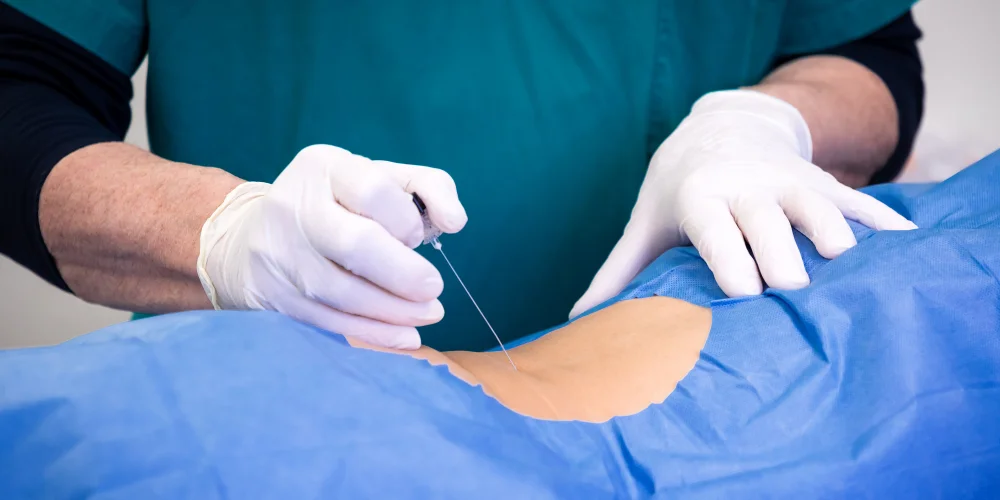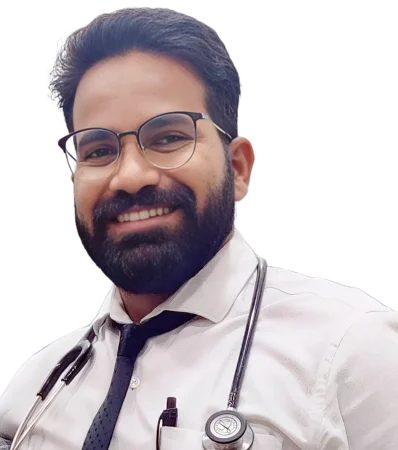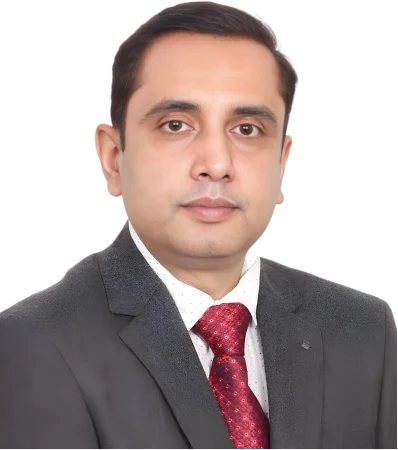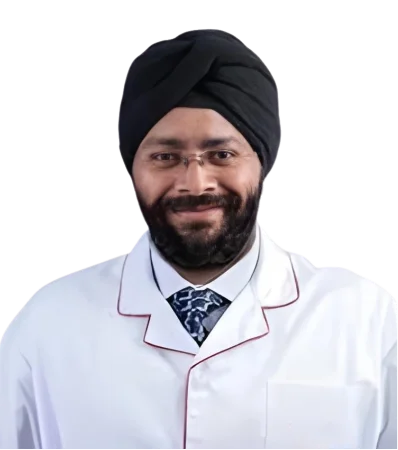Hernia Repair Surgery
Advanced Techniques for Lasting Relief and Fast Recovery
Repair of hernias is a standard and effective method to treat a hernia. It occurs when an organ within the body or tissue is pushed through a weakness in the muscle surrounding it or connective tissue. The condition can lead to discomfort, pain and other health issues when ignored. Here at Chirayu Super Speciality Hospital, we provide both conventional and minimally invasive hernia repair procedures to ensure our patients receive the best medical treatment possible. Our highly skilled staff of surgical surgeons as well as health specialists is dedicated to providing top-quality, customized treatment that is focused on the safety of patients, speedy recovery and the best health outcomes.

What is a Hernia?
A hernia happens by a body organ that is usually part of the intestine expands out of a weak point in abdominal muscles. Hernias that are common include inguinal (groin region) and the umbilical (around stomach button) and hiatal (upper stomach) or incisional (at the site of an earlier operation). While some hernias might show no symptoms, others may cause severe discomfort and pain especially when lifting, bent, or coughing. In the most severe cases, hernias could cause complications, such as strangulation, which occurs when there is a loss of blood flow to tissues is interrupted, which requires urgent surgery.
Who Performs Your Surgery?
In Chirayu Super Speciality Hospital, the hernia repair procedure is carried out by highly skilled and experienced general surgeons, who are experts in abdominal as well as minimally invasive surgery. Our surgeons are aided by a group of highly skilled nurses, anesthesiologists, and surgical technicians who are committed to providing top-quality patient treatment. With a strong focus on safety and precision, our medical staff ensures that every repair to a hernia is done using the highest standards of surgical quality.
Types of Hernia Repair Surgery
- Open hernia repair : A standard surgical procedure that involves a single cut placed on the site of the hernia. The surgeon then pushes the protruding tissue back in place and fixes the weakened region by using stitches or mesh.
- Laparoscopic Hernia Reconstruction : A minimally-invasive procedure that involves small incisions that allow a laparoscope to be inserted and specially designed instruments are inserted. The surgeon can repair the hernia with mesh, which provides advantages such as less postoperative pain, quicker recovery, and less visible scars.
- Robotic Hernia Treatment : Similar to laparoscopic surgery, but with an automated system that improves the precision and control. This technique is perfect for complicated hernias, and also provides high-definition imaging for improved outcomes.
Symptoms Indicating the Need for Hernia Repair
- A noticeable bulge in the abdomen or groin area that may increase in size over time.
- Pain or discomfort, especially when bending over, coughing, or lifting heavy objects.
- A burning or aching sensation at the site of the bulge.
- Weakness or pressure in the abdomen.
- Difficulty swallowing or acid reflux (in the case of a hiatal hernia).
- Nausea and vomiting (a sign of a potentially serious complication).
Diagnosis for Hernia Repair
The most common method of diagnosing a hernia is an examination of the body, in which the doctor can detect an increase in the region, particularly when the patient is coughing or standing. Imaging tests like ultrasonography, CT scans, or MRI can be utilized in order to verify the diagnosis as well as to determine the nature and size of hernia. Based on the results the doctor will suggest the most suitable kind of surgery to repair hernias.
Treatment Process
Hernia repair surgery can be performed under either local or general anesthesia, based on the nature and severity of hernia. When it is an open procedure an incision of only one inch is placed over the hernia area and the protruding tissue is pulled back into position. The area that is weaker is secured with sutures or mesh made of synthetic material. When performing laparoscopic surgical procedures, or robotic ones tiny cuts are made and the hernia can be repaired with specialized instruments as well as a mesh. The minimally-invasive procedure will result in less pain and a faster recovery. The entire procedure takes between 30 minutes and 2 hours, based on the type of hernia as well as extent of the procedure.
Care and Recovery After Surgery
Following surgery the patients are closely monitored in the recovery room and discharged usually on the same day or following the overnight hospitalization. Treatment for pain is offered, the patients will be advised against the weight of heavy lifting, strenuous exercises and straining for the next few weeks. Moving and walking lightly is recommended to speed up healing and reduce the risk of complications like blood clots. An appointment for follow-up will be scheduled to track the healing process and ensure that it is complete. The majority of patients are able to return to normal activities in some weeks, contingent on the kind of surgery that was performed.
Advantages of Choosing Our Surgery Services
Expert Hernia Specialists
Experienced surgeons perform both open and laparoscopic hernia repairs with a focus on patient comfort.
Advanced Surgical Techniques
Use of minimally invasive methods to reduce recovery time and recurrence rates.
Comprehensive Aftercare
Thorough post-operative support to ensure quick and complete recovery.
What Our Patients Say
Read about our patients positive experiences and how Chirayu Super Speciality Hospital has positively impacted their health and well-being.


I was able to return to work much sooner than I expected after my hernia surgery at Chirayu. Great job!


I had been living with hernia pain for years. Thanks to Chirayu, I’m pain-free and back to my normal activities!


The staff at Chirayu made me feel comfortable from start to finish. My hernia surgery went smoothly, and I felt well cared for.


I was surprised by how quickly I recovered after my hernia repair at Chirayu. The care and expertise were outstanding!
Meet Our Medical Specialists
Our experienced surgeons provide expert hernia repair using advanced techniques for safe, effective treatment and faster recovery.
Frequently Asked Questions
Here, we provide answers to some of the most commonly asked questions to help you better understand about our surgery services. If you have any additional questions, please do not hesitate to contact us.
The procedure typically takes between 30 minutes to 2 hours, depending on the hernia’s size and complexity.
There are open, laparoscopic, and robotic hernia repair surgeries, each with specific benefits and suited for different types of hernias.
Laparoscopic repair is less invasive, offering benefits like smaller scars, less pain, and quicker recovery compared to open surgery.
Hernia repair surgery is a procedure to correct hernias by pushing the protruding tissue back into place and reinforcing the weak area.
Surgery is needed when a hernia causes pain, discomfort, or complications like strangulation, where blood supply to the tissue is cut off.



